I came to the US ten years ago, barely sixteen years old, with no family or friends here. I saw myself as a lone traveler—an immigrant woman on a journey to the American Dream. I now realize that, along the way, I was also reaching out to others who could help me adapt, acculturate and navigate this new terrain.
I was born and raised in Nigeria, one of a family of eight. After I graduated from high school, my path was unclear, but I was fortunate that my parents could afford to send me to school abroad—a norm among some privileged families, due to Nigeria’s patchy higher-education system and limited employment prospects.
I’d always been drawn to medicine, so my dad enrolled me in a medical school in Dominica, which accepted students without a bachelor’s degree. Going there meant leaving behind everything I’d ever known—my family, home and culture. My parents and I felt a mix of hope and anxiety about the prospect.
After a year there, I abruptly returned to Nigeria. I couldn’t shake the sense that there were greener pastures elsewhere. A childhood visit to the US with my parents had left me feeling that it was a land of opportunity, where you could accomplish your dreams with hard work, and I was hopeful that this could be my experience.
Knowing very little about the US education system, I applied to several schools and decided to attend SUNY Geneseo, in upstate New York, because their international student office had been the most responsive.
Leaving everything behind for a second time, I felt less conflicted. After all, I had already navigated Dominica alone at fifteen, and thanks to improvements in telecommunications, my parents and I would be able to speak fairly often. I felt eager to begin.
I booked my flight, student visa in hand, and made the twenty-plus hour journey to Rochester, New York.
The international-student office staff welcomed me at the airport, and I admired the fall leaves as we drove back to campus. There they gave me a pillow and directed me to my dorm room, which I would share with an American student.
Although the US was an entirely new landscape, I did have the shelter of living on campus, surrounded by other students who were also experiencing being away from home and family, often for the first time.
Still, looking back, I cannot believe how brave I was. Not yet an adult, and making this incredible leap of faith, I had no second thoughts. I had prayed for this opportunity, and I was determined to seize it to the fullest.
I thrived at Geneseo. In the course of my premed studies I formed a warm relationship with my research mentor, who not only wrote a recommendation for my medical-school application but also became a friend. I graduated summa cum laude in under three years and presented the commencement speech on behalf of my class.
Reflecting on these achievements, I know that if they were someone else’s, I would applaud them. But I often downplayed my own accomplishments, telling myself that academic success simply came naturally to me—no need for self-congratulation. Gradually, I began to realize that letting myself fully appreciate my skills and achievements also allowed me to feel happier and to enjoy the present more fully.
For many college students, graduation marks a difficult transition. The shelter of college is gone, and you have to become a self-sufficient adult. For me, the first summer after graduation was particularly challenging: My lease was ending, and I had no family here and no place to stay while I looked for jobs.
The only person I could turn to was my research mentor. She immediately responded to my text, saying that her family had a spare bedroom, and helped me to move in that same day. I felt incredibly fortunate.
The US grants STEM majors a three-year work authorization, so I was able to get a job as a quality-improvement specialist for Xerox. This enabled me to save money while preparing for my Medical College Admission Test. In fall of 2018, I matriculated at Geisel School of Medicine at Dartmouth College, where I am now completing my fourth year. A surreal realization.
Looking back at my journey, there are many highlights—but one stands out: the comments from the people I meet about the joy that I seem to radiate.
If only they knew how, growing up, I’d struggled socially. I’d always been a disgruntled child, with a frown and a pessimistic view of the world. In the US, I unknowingly took on a friendlier, more approachable demeanor. As a young migrant, alone in a new country, I intuitively realized that I needed to forge relationships with people and create community. I realize, too, that my more relaxed manner of relating to myself and others also reflects my newfound situation and outlook on life.
If you tour the streets of Nigeria, you’ll sense, beneath my countrymen’s genuine, undeniable warmth and joviality, a subtle somberness and pessimism. This reflects, I believe, a kind of learned helplessness in the face of economic hardship and political turmoil. Many people lack food and basic security. Stark class divides, political corruption and scarce medical care are the norm.
Completing a university course can take years, due to faculty strikes for higher pay; and oppressive cultural norms make life more difficult, especially for young girls and women. These harsh realities push many people into survival mode. Despite my privileged upbringing, growing up I must have absorbed this sense of reality on some unspoken level. I may have felt that I too was in survival mode.
Now, in the US, I notice similar moods and responses in patients from underprivileged communities. As a trainee, I hope to deepen my understanding of this aspect of people’s lives, so that I can better help them when I begin independently practicing as a physician.
Reflecting on my new, more receptive outlook, I am deeply grateful that it enabled me to assemble a solid community of friends and colleagues.
Their support was crucial to my well-being as an immigrant woman in a new country. Without it, I might have stayed in survival mode. Instead, with their help, I was able to grow, thrive and succeed academically and personally. I wish this for everyone.
I am achieving my American dream, and I remain privileged and grateful through this journey.

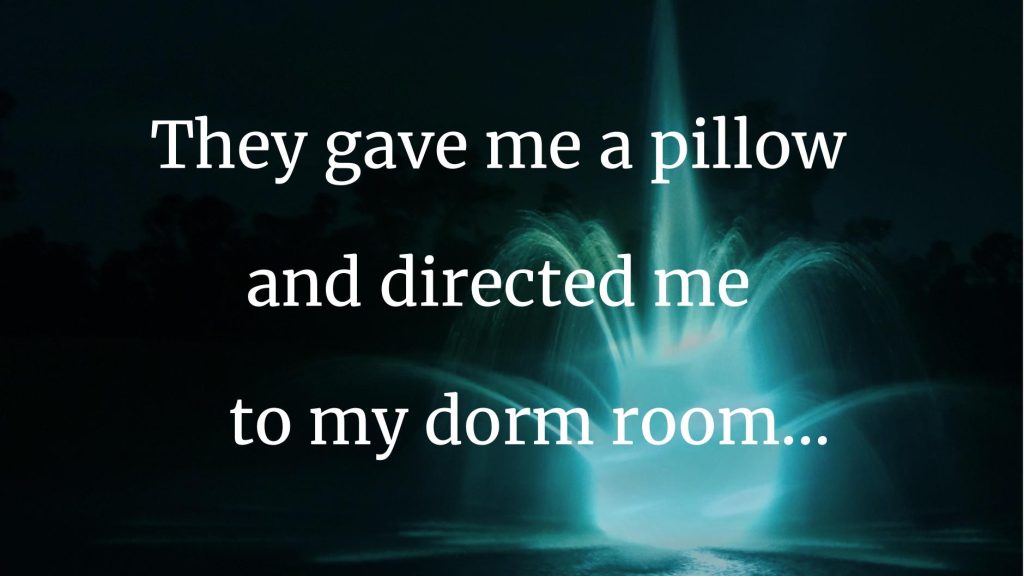
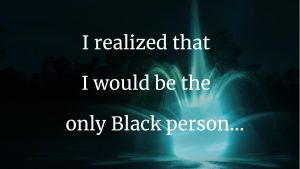

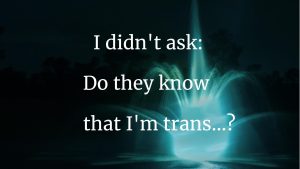
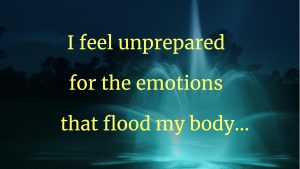

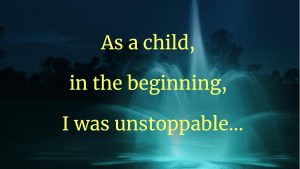

13 thoughts on “My American Dream”
Amaka your story is very inspiring. You are exceptional and help those around you become better versions of themselves. You have earned every right to be proud of yourself! Thank you for sharing your story.
Your story is amazing Amaka! The medical field is lucky to have you. Your dedication and resilience are indicative of the great things you’re going to achieve as a physician, and we can’t wait to celebrate you!
Your story is amazing Amaka! The medical field is lucky to have you. Your dedication and resilience are an indication of the great things you’re going to achieve as a physician, and we can’t wait to celebrate you!
Your courage is amazing. Kudo’s to you.
Thank you so much Ms. Campbell.
Thank you for sharing this story, just the kind we all need to hear about, but so rarely do. Your future patients will be very fortunate.
As someone who spent 36 years working for Dartmouth (25 of them for the med school), I am thrilled, Amaka, that you found your way to Geisel. And as someone who has been one of the editors for Pulse for the past 10 years, I am equally thrilled that you found your way to this outlet for your powerful story. I wish you all the best in your next chapter — and I hope you will continue to share your insights with Pulse readers!
Dear Ms. Grossman,
I am so glad to get this message from you. I am so grateful for my time at Geisel! I love reading the stories in Pulse and am ecstatic to have a featured story.
Really glad you wrote this and very grateful you have dedicated yourself to a life of service. Very best wishes to you.
Amaka, thank you for sharing your experience. We are lucky to have you as an aspiring doctor with your intelligence and your empathy. Good luck to you, Amaka
Amaka, your beautiful article radiated joy and a determined perseverance. Thank you for providing a glimpse into your journey in becoming a doctor.
Thank you so much for reading my article Heidi. I am so glad you perceived joy. This write up truly is a celebration as I am take the time to reflect